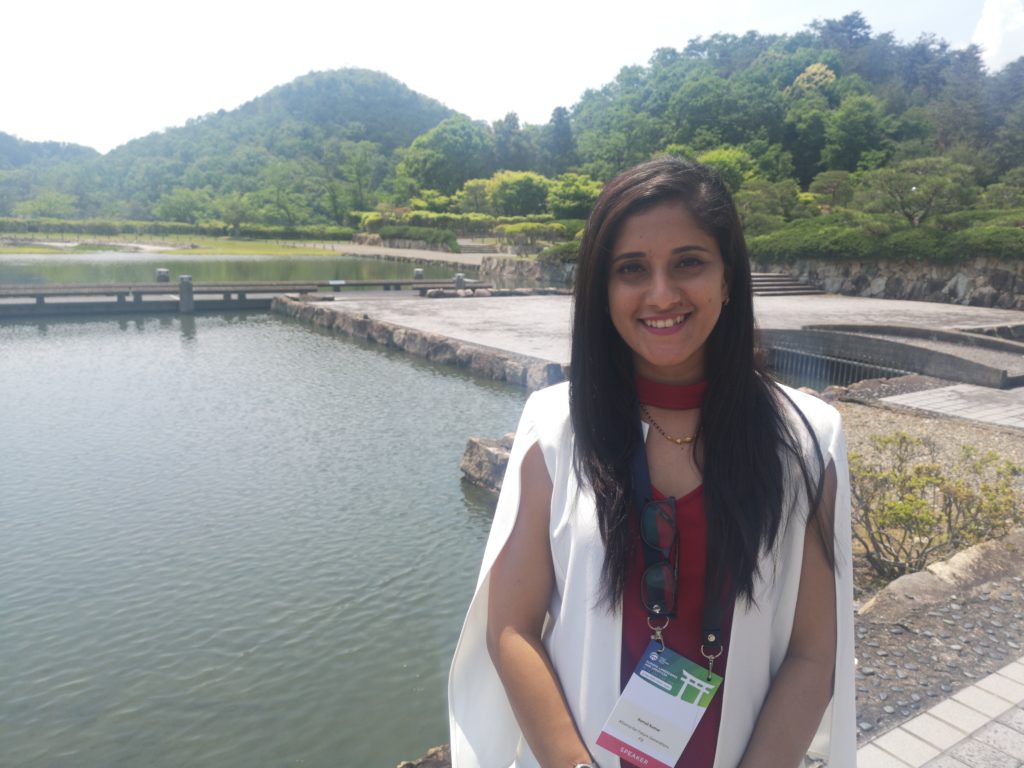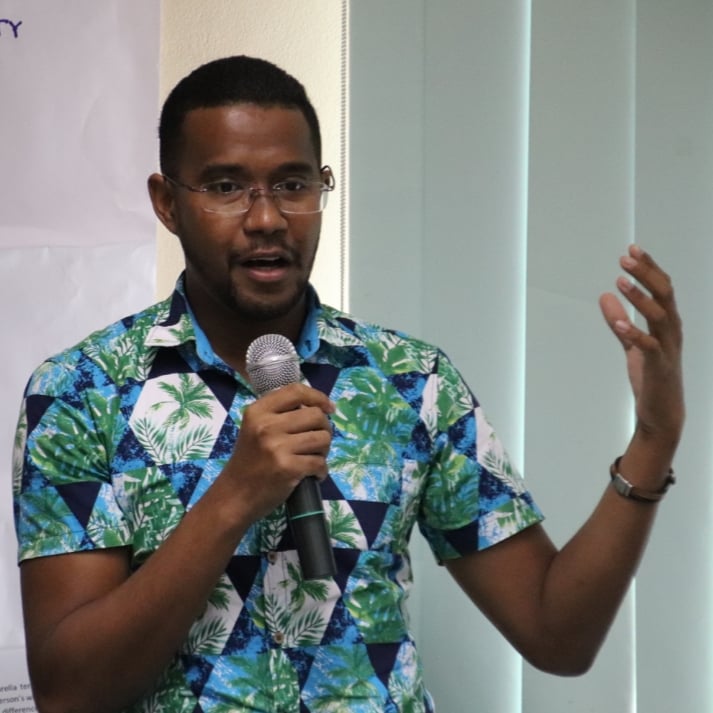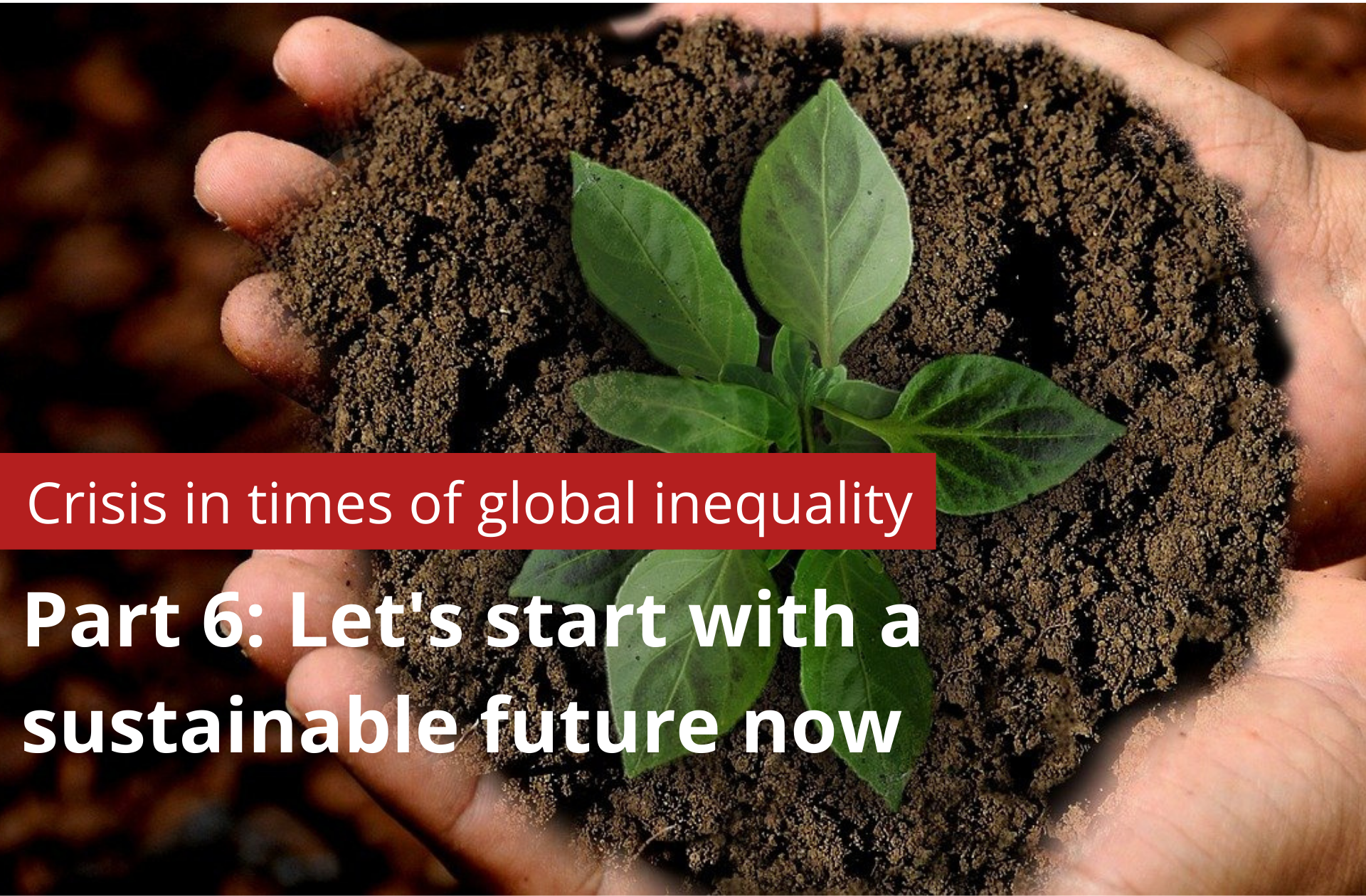Teaser:
In the last part of our Corona Interview Series we speak to two climate activists from the Small Island State Fiji, which is especially exposed to the consequences of climate change. Lavetanalagi Seru and Komal Narayan are both active members of the Alliance for Future Generations and are working towards a liveable future in Fiji — now as well as in the future.


A. Situation before Corona
Klimadelegation e.V.: What was the situation in your country/region like before the Corona pandemic?
Komal Narayan: Fiji is a developing country but also the hub of the Pacific being the most developed compared to other Pacific Island Countries ( leaving out Australia and New Zealand of course). Generally, our healthcare system often faces turmoil as we lack resources and capacity to be able to achieve top quality health care services. The government health services are limited and often time consuming while private health care is costly. Our infrastructure is developed to some extent and easily accessible by its people, mostly for those living in the urban areas. Fiji’s economy has been progressing well for the past few years with Cyclone Winston as a major set back that greatly affected our economy and many were slowly recovering from it since 2016. In terms of climate change, Fiji has been ahead and we have had policies being implemented such as the Planned Relocation Guidelines of Fiji, Displacement Trust Fund, consultations for the National Ocean Policy and the upcoming climate change act. We have had communities being relocated to cope with the impacts of climate change and the country is investing slowly in climate adaptation options. The impacts of climate change is quite evident with high intensity cyclones affecting Fiji and the Pacific and rising sea-levels. For instance, the latest tropical cyclone Harold once again greatly affected the Fijian economy in terms of agriculture and in turn has impacts on the economy.
Lavetanalagi Seru: Was den Klimawandel betrifft, so haben die Gemeinden hier auf den Fidschi-Inseln bereits die Auswirkungen des Klimawandels und des Anstiegs des Meeresspiegels zu spüren bekommen. Viele der Gemeinden versuchen, einige dieser Auswirkungen abzuschwächen oder sich an die Veränderungen anzupassen.
Klimadelegation e.V.: How was the political situation before the pandemic?
Lavetanalagi Seru: In terms of the political situation, we have a government, which is led by the current majority, the Fiji First Party. When it comes to climate change it is very important to understand the history of Fiji. Fiji is one of the colonized Pacific countries, colonized by the British. The British brought in indentured laborers from India to work on the sugar cane fields. Later, when the Indians were freed, some of them stayed and some of them went back to India. Now, we have almost half of the population who are of Indian descent. We have had four Coups: there were two military coups in 1987, there was a civil coup that was led by the people in 2000 and there was another military coup in 2006. And many of those, who were leading the coup of 2006, are now part of the country’s political leadership. All of those coups were carried out for one major reason: the growing ethnical and racial division. The Indians were seen as a threat by the indigenous people. It is really important to talk about this. Because in the context of climate change, one thing we will experience in the Pacific is not only the massive internal displacement but also migrants who have to move away from their own island countries in the Pacific e.g. the Marshall Islands, Tuvalu or Kiribati to Fiji, because their islands are going down underwater. This is important to understand, because in Fiji there is already racial and ethnical division between the people. If we see a continuance of people having to move to Fiji, what does it mean? Talking about xenophobia, and discrimination against migrants etc. And we have already seen four coups as a result of that, so what does it look like in the future for us here in Fiji? We could potentially face greater civil unrest for instance.
B. Situation during Corona
Klimadelegation e.V.: How did Corona affect you and your country?
Komal Narayan: In my case, corona did not impact my family as we all have jobs where we could continue to work from home. The major implication and difficulty was during the two week lock down period to juggle family, personal time and work hours all at once. This to some extent made me more active and helped me plan my time well and also focus on things like reading and meditation. However, many of the families who had jobs in the tourism sector, which has been greatly affected are struggling to make ends meet for their family. Many are now opting for backyard gardening for subsistence livelihood and using innovation and skills to start up their own small scale businesses to help them earn a living.
Lavetanalagi Seru: I guess for many young people, as COVID-19 happened and the country went into lockdown mode in the early days, it was clear that they will lose their jobs in the service and tourism industry. The tourism industry is the major contributor to the GDP in Fiji. All the hotels had to close, there were no flights. Many weren’t able to pay their rent, so they had to move back to their families. Many didn’t have any support system to help them.
But there were not only economical but also many social issues. A lot of discrimination, especially towards the LGBTQI+ community. They were being blamed. There were many religious narratives and all those misconceptions were circulating.
We also saw a food security crisis during the period. The price of fresh and nutritious food and vegetables in the market really skyrocketed. In the communities, the fact that we had lock-down and people were unable to go out and fish at certain hours caused many challenges. Already before COVID-19, there were cases of coral die-offs and acidification. The fishes are beginning to migrate to other waters, so people have to go out fishing longer, because they are not getting much catch. During COVID-19, if they don’t get the catch and return back early so as to not get in the way of the curfew, they are almost empty-handed or with less catch for the day.
For now, we don’t have any COVID-19 cases. We are trying to bounce back. Several hotels within the tourism industries are now open; we have some flights now. But, I guess, it is the new normal. We still have curfew from 11 pm to 4 am in the morning. Many people have lost their job permanently. Some are coming back to work with either reduced hours or reduced pay.
C. Lessons from Corona – Messages for the Future
Klimadelegation e.V.: What lessons should we learn from the Corona Crisis for fighting the Climate Crisis (collectively and individually)?
Komal Narayan: The biggest lesson for us all is that if we can curb carbon emissions and reduce pollution by minimizing our movements and have a sustainable living because of one pandemic. Then we can surely make this a habitual practice for a sustainable future for our planet. We have learnt that some of our daily habits can be forgone to ensure our carbon footprints are minimized and of course using innovation and sustainable technology to form alternatives to some of our daily actions. I´m wondering, if one pandemic can make us all work together, then what is stopping us from coming to a common ground when talking about the climate crisis or future issues caused by this crisis? I am hoping for a future where leaders and youth alike work together with common goals for the betterment of our planet and not working for economic or monetary benefits only. This is just one pandemic we are facing that has created havoc around the world and made us re-adjust our lives, but what about the future crisis that is yet to come? How will this impact us and our livelihoods? I feel that if we are not able to work together as one then we will never be able to find solutions to the greater problems at hand.
Lavetanalagi Seru: People are learning to and trying to become resilient. And I guess people in the Pacific have always been resilient people but this is kind of new. It is an unprecedented challenge during this time of great progress and technological advancement and that has made people realize that there is a greater dependency on the natural environment. When there was the food security crisis there were many programs happening around the provision of seedlings and people were going back to do farming and backyard gardening. With the Alliance for Future Generations – Fiji and the local NGO FRIEND Fiji we did an online training for backyard gardening, and we distributed seedlings so young people can plant.
I guess, people are starting to realize that our indigenous way of living has been sustainable for many years. The current way of life, the unsustainable consumption production and distribution patterns in the last 50–100 years are unsustainable and not healthy for the planet. The planet becomes sick – and then we have to really learn the hard way. People are resorting to age old strategies and relying on traditional and indigenous wisdom for resilience. This feeds into the greater scheme around mitigation and adaptation. How people can be resilient not only to COVID-19, but also to the pending climate crisis, which is sort of the bigger war. Climate change is the bigger war we have to fight in order to live in a safe, sustainable and habitable future. Not only for us but also for the future generations.
COVID-19 has also allowed people to rethink and re-imagine their lifestyle in terms of misuse of nature, misuse of resources and to manage this limited and finite resources that we have. We cannot always take it for granted. This has been a sort of awakening for people around life-style.
During COVID-19 we from the Alliance for Future Generations also acknowledged that the mental health is very important. We gave mental health webinars in partnership with the Samoa Victims Support Group Juniors from Samoa, where we talked about coping strategies and young people were able to be part of peer-to-peer groups during the challenging times. This is very important for resilience – not only to Covid-19 but also to climate change.

Pingback: Human Rights Day 2020 - OHCHR